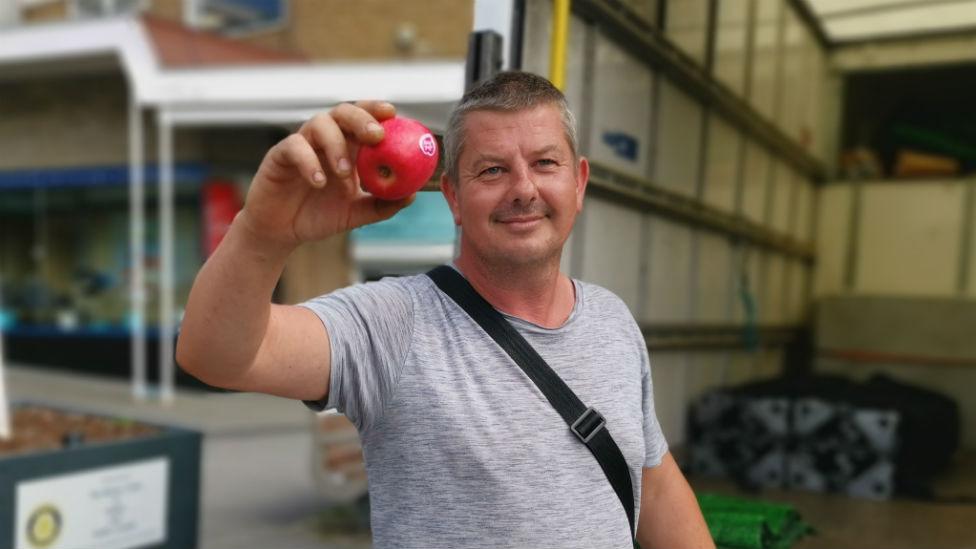Oadby and Wigston's virus infection rate leads to restrictions
- Published
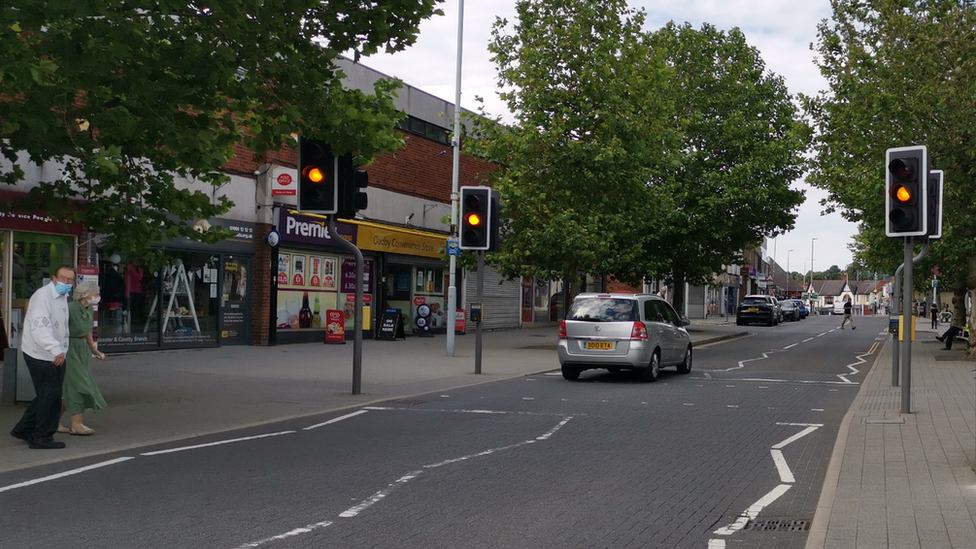
Oadby and Wigston district was released from local lockdown measures in August
Residents in Oadby and Wigston have been banned from meeting other households in homes and gardens.
The Leicestershire borough had the second highest seven-day infection rate in England behind Bolton in the week up to 12 September.
Fresh restrictions will come into force from 22 September.
Oadby and Wigston Borough Council confirmed on Thursday it would deploy marshals to public spaces to enforce the coronavirus rules.
As well as the new restrictions, people in Leicester will no longer need to carry on shielding from 5 October.

SOCIAL DISTANCING: What are the rules now?
SUPPORT BUBBLES: What are they and who can be in yours?
FACE MASKS: When do I need to wear one?
TESTING: What tests are available?

The district of Oadby and Wigston was part of the UK's first local lockdown that was imposed on Leicester and surrounding areas in June, but restrictions were relaxed in August.
The latest announcement made by the Department for Health and Social Care came as similar measures were outlined for other parts of England experiencing a spike in coronavirus cases.
Borough council leader John Boyce thanked "everyone who has followed the guidance", and asked residents to "try to stabilise and reduce the spread of the virus".
Ebrahim Shaikh, owner of Ace of Fades Grooming, had only been open for a matter of weeks since the first local lockdown ended in August when one of his customers tested positive and he chose to shut his barbers again.
He said: "Of course this news is worrying. But it's also surprising - I've never seen people breaking the rules round here, none of my customers have been saying they've been having parties."
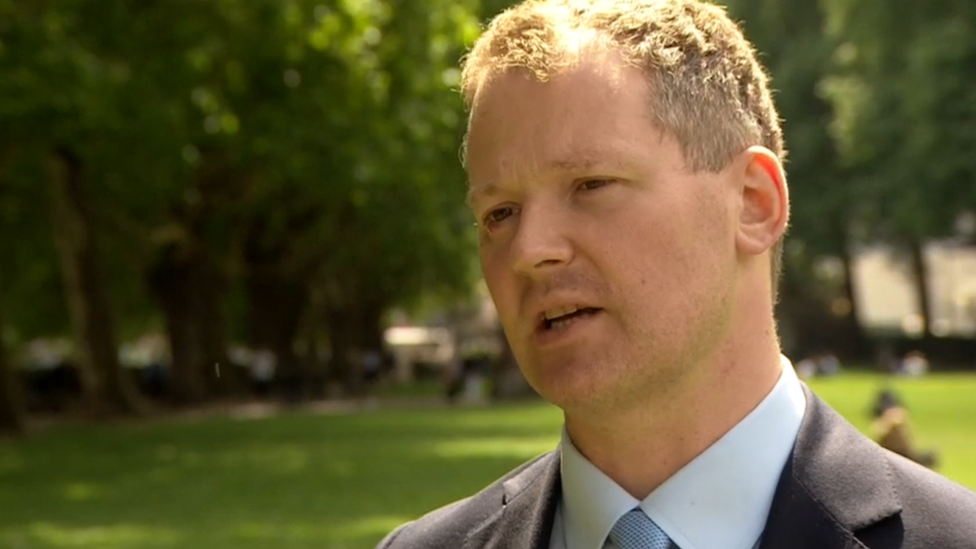
Local MP Neil O'Brien said he would "ensure constituents are kept in the loop as much as possible"
Following the announcement local MP Neil O'Brien said he was "pleased that businesses will not be forced to close their doors again" and a full lockdown had been avoided.
Nearby Blaby district has now been placed on a government watch list after its weekly Covid-19 rate rose to 65 cases per 100,000 people, twice the national average.

Follow BBC East Midlands on Facebook, external, Twitter, external, or Instagram, external. Send your story ideas to eastmidsnews@bbc.co.uk, external.
- Published16 September 2020
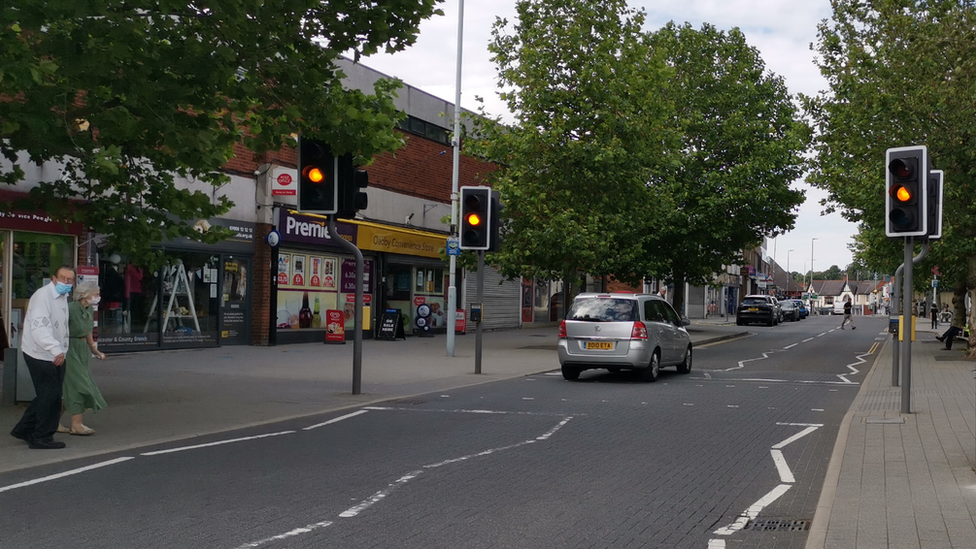
- Published16 September 2020
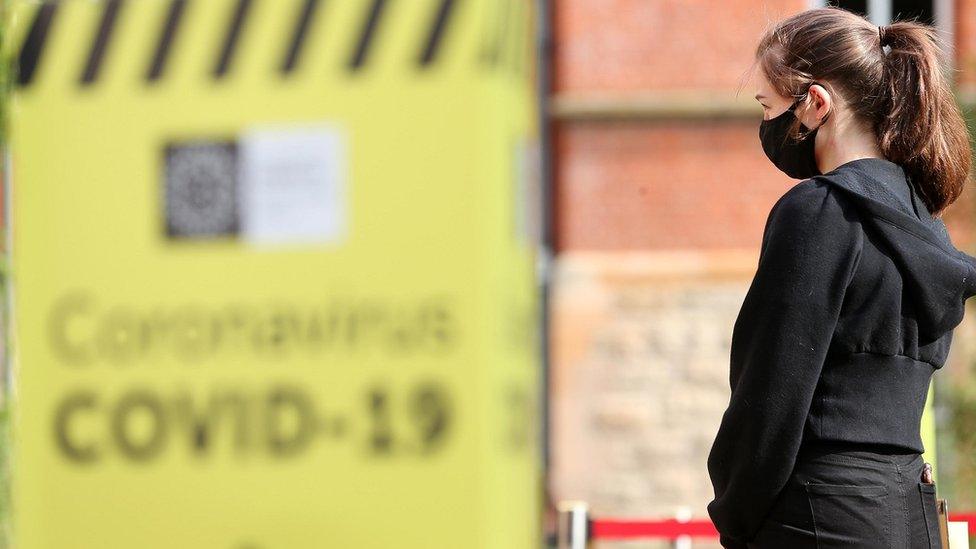
- Published15 September 2020

- Published8 September 2020
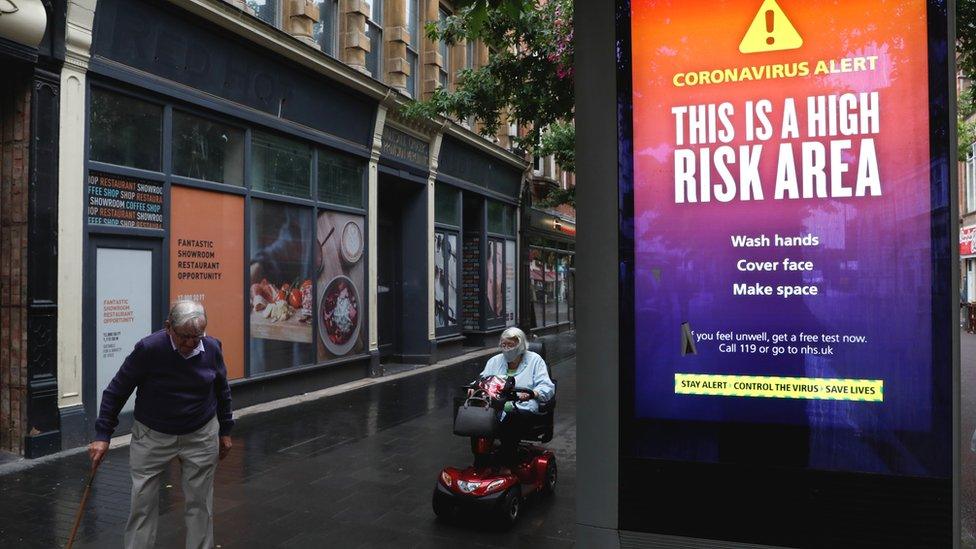
- Published2 July 2020
